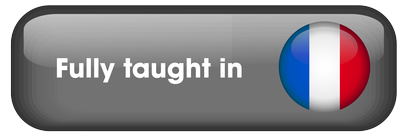B a c h e l o r i n e c o n o m i c s a n d m a n a g e m e n t
 The Bachelor in Economics and Management at UNamur is a 3-year programme organised in French only.
The Bachelor in Economics and Management at UNamur is a 3-year programme organised in French only.
For more information, visit the web page in French.
M a s t e r i n e c o n o m i c s

How can we explain the strategies of companies such as AirBnB or Uber?
Should employers pay their employees on the basis of results?
How can we reduce poverty and inequality in emerging countries?
What is the effect of aging on the sustainability of our pension system?
Should there be a free choice of schools in Belgium?
How should we define and measure the prosperity of a region or a country?
Could the Euro crisis have been avoided?
These are just some of the practical economic and social issues that you as an economist will be aiming to address.

Y o u r o b j e c t i v e s
- To develop a global perspective on an economic situation: ‘Helicopter view and strategic thinking’. To analyse data with precision and detect the causes and consequences of an action.
- To contribute to the development of new ways of structuring companies, institutions or society as a whole.
- To acquire international experience.
- To work in a team with specialists of other disciplines.
W h y s t u d y a t U N a m u r ?
| An internationally renowned master! | |
|---|---|
 |
A 100% English curriculum
If you wish, you can study for this entire Master in English. This will allow you to gain an excellent mastery of business English in an international student environment. |
 |
Erasmus exchanges
You will have the opportunity to spend four months studying at a foreign university, in Europe or beyond! |
 |
A double degree
For the more highly motivated, there are double degree programmes: you will spend one year at a prestigious university abroad and one year in Belgium and you will be awarded two degrees at the end of your two years. Double degrees include notably a Master with specialisation in Finance at Geneva, a Master in Economics and Politics at Milan, a Master in European Economics at the University of Maastricht, and many others. |
 |
Partnership with KULeuven You will also have the opportunity to take subjects in English in many areas of Economics at KULeuven. |
p r o g r a m m e s
2 year master - 120 credits
Different subjects, case studies, encounters with professionals, group projects, a placement in Belgium or abroad... everything possible is done to develop your expertise.
Choice of options and focus:
Options:
|
As this programme is organised jointly with UCLouvain, you will be a graduate of two universities! This Master offers an unrivalled choice of options and subjects. You are free to choose those which interest you. To enrol for this programme, please exclusively contact UCLouvain. |
- Macroeconomics: cycles and speculation (Louvain-la-Neuve): to analyse speculation and short-term fluctuations, and understand the role of macroeconomic balances.
- Macroeconomics: structural policies (Namur): to evaluate European, federal and regional structural economic policies.
- Finance: markets (Namur): to analyse how financial markets and institutions work.
- Finance: currency (Louvain-la-Neuve): to analyse the foundations of monetary policy, the role of currency, financial markets and foreign exchanges.
- Development: poverty and institutions (Namur): to study issues surrounding poverty, inequality and market imperfections; to identify the role of institutions and analyse environmental changes.
- Development: growth and globalisation (Louvain-la-Neuve): to study growth and the macroeconomy of developing countries and to identify obstacles to growth.
- Economics of public intervention (Namur): to study the causes and consequences of state intervention in the economy.
- Labour and human resource economics (Louvain-la-Neuve): to understand the workings of the labour market, unemployment and company human resources policies.
- Economics and society (Louvain-la-Neuve): to carry out an economic analysis in collaboration with other social sciences exploring different themes: social policy, redistribution mechanisms, the non-profit sector, etc.
- Firms’ strategies (Louvain-la-Neuve): to understand the specificities of innovation markets, the characteristics of network industries, integration and differentiation strategies and the objectives of competition policy.
- International economics (Louvain-la-Neuve): to understand trade policies, trade liberalisation and economic integration; to identify the winners and losers in international trade; to examine the determining factors in company location strategy and the benefit of clusters.
It is possible to study the entire programme at Namur, but to limit travelling time if you choose an option at Louvain-la-Neuve, all three subjects in each option are taught on the same day.
Focuses:
- Professional focus: to become a professional economist.
- Research focus: provides a grounding in economic research and the development of innovations aimed at informing best professional practice.
The remainder of your programme will be made up of a choice of subjects in Economics, Languages and Statistics and you will write a thesis related to a project, a company or a more academic matter, in which you will use all the knowledge and competencies you have acquired.
1 year master - 60 credit
This Master provides an excellent foundation in Economics. You will follow daytime courses, including a minimum of two options from the eleven offered as part of the Master 120 programme.
Staggered schedule master
The Master in Economics 120 and 60 credit programmes are also available on a staggered schedule, so that you can combine university studies with family and work commitments. For more information on staggered schedule programmes, visit this link.









